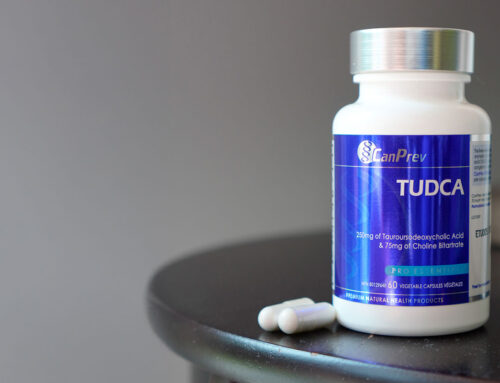Trusting your gut comes in handy for more than just listening to your intuition. This phrase also rings true for your overall wellbeing. And that’s because your gut has the ability to impact your whole body. From digesting food to impacting your immunity and cognitive health, your gut has a say in it all.
What is the gut microbiome?
Trillions of bacteria, viruses, fungi, and other microscopic critters live inside you. A large portion of these critters can be found in your gut, specifically in the cecum, which is a pocket within the large intestine. All these bacteria are what composes your gut microbiome.
Your gut microbiome starts to develop from the day you are born. Through vaginal birth, the bacteria from the vagina gets passed down to baby in order to equip them with a diverse microbiome. Babies born via C-sections are exposed to the bacteria found in the mother’s skin microbiome, which consists of different bacteria than those found in the vagina. Although, researchers have studied the effects of exposing infants born via C-section to the mother’s vaginal fluids shortly after birth, and found that doing this impacted the make-up of their microbiome, making it look similar to infants born vaginally. As you grow older, the composition of your microbiome evolves according to the foods you consume and the different bacteria or pathogens within various environments you encounter.
There are around 300 to 500 different species of bacteria in the gut microbiome. Some of them are beneficial, and others are potentially harmful in abundance. A healthy balance of both is what’s most important for overall health.
Healthy bacteria, healthy gut
The most common beneficial bacteria that defend your body against pathogens include Bifidobacteria and Lactobacillus. While Bifidobacteria make up the majority of the good bacteria in your gut, Lactobacillus bacteria are usually found in the digestive, urinary, and genital systems. Additionally, varieties of both bacteria are commonly found in probiotic supplements.
Bifidobacteria are known to:
- Limit the growth of harmful bacteria in the intestine
- Support immune system function
- Help break down lactose into nutrients
Lactobacillus are known to:
- Produce lactase to break down lactose
- Produce lactic acid to help control the number of bad bacteria in the gut
- Help increase the body’s absorption of minerals
Why balance matters
In a healthy individual, good and bad bacteria coexist together in a peaceful balance. The problems start when there is an interruption to this equilibrium. An imbalanced gut can disrupt your body’s ability to absorb essential nutrients, store fat, and maintain healthy levels of blood sugar.
It can lead to digestive problems such as irritable bowel syndrome (IBS) and Crohn’s disease, high cholesterol and blood pressure, and weight gain. Moreover, your immune system function is weakened by an unbalanced gut, and you may be more vulnerable to anxiety and depression.
Let’s dive a little deeper.
Your microbiome and the rest of your body
The gut microbiome has a far-reaching impact on the body. In fact, it’s directly involved with many of your body’s major systems.
Digestion
There are many cells on the intestinal wall which communicate with your gut microbiome. This communication controls your digestion and overall gut health. Having a healthy gut microbiome will support your digestion because the good bacteria populating in the gut will help prevent disease-causing bacteria from sticking to your intestinal walls. They also help to digest your food and extract nutrients for your body.
A sign of good gut health is having a minimal number of food intolerances. This is because intolerances to certain foods are often a result of an imbalanced gut microbiome. Food intolerances make it difficult to digest those foods, leading to uncomfortable symptoms like bloating, gas, diarrhea, nausea, and abdominal pain. However, a healthy microbiome ensures that the good bacteria keep the bad bacteria at bay, ultimately aiding with digestion and nutrient absorption.
Another way you can tell that your gut health is in good shape is by monitoring your bowel movements. Regular elimination is a clear indicator of good digestive health and ensures that your body is not holding onto harmful toxins.
Immunity
Your gut microbiome also impacts how your immune system functions. An imbalance in your gut bacteria can contribute to a weakened immune system. This is because your gut is home to 70% of the body’s immune system.
Your immune system and gut microbiome have a symbiotic relationship and communicate with each other using signals in the form of hormones. The gut microbiome interacts with immune cells (T-cells) to determine how your body should respond to an infection or harmful invader. The bacteria in your gut help guide T-cells to differentiate unwanted pathogens from your own tissue. It does this by using signaling pathways to regulate immune homeostasis.
An unhealthy gut microbiome is thought to increase inflammation and change how well your immune system works. This can lead to autoimmune diseases such as Crohn’s disease, where the body targets itself rather than attacking the harmful pathogens.
Mind & mood
Last but not least, your gut microbiome can affect your brain and cognitive health. And factors that influence your brain can also have an impact on your gut health. This is because of the gut-brain connection, an interaction that’s a two-way street.
There are numerous nerve cells that line your intestinal or gut wall. These nerve cells are what your gut and brain use to communicate with each other. These cells are impacted by the hormones and signals your brain receives from the various emotions you are feeling in a certain situation. This means that factors such as sadness, anger, and anxiety affect your gut microbiome.
For example, when you experience stress your brain sends a signal to your gut microbiome using hormones and signalling pathways that change its composition. This results in an unbalanced gut. Over time, chronic stress can increase the number of pathogenic bacteria in your gut microbiome and outweigh the good bacteria, ultimately leading to gut inflammation. And inflammation in your gut can cause uncomfortable symptoms such as constipation and diarrhea, and even weaken your immune system.
Your gut can also send signals up to your brain to let it know if something is wrong. If your gut microbiome is unbalanced, your brain can be affected by the signals that are sent to it. This is because the bacteria in your gut release metabolites, toxins, and neurohormones, such as cortisol (stress hormone). These signals can provoke the brain to alter your eating habits and mood, which can lead to anxiety or depression.
There is still so much to learn about the gut, and constant ongoing research to uncover new information about what the bacteria inside of us are up to. What we do know is that your gut microbiome is intertwined within your body’s numerous systems, which is why having a healthy gut is vital for overall wellbeing. A balanced gut will not only help you prevent uncomfortable digestive problems and strengthen your body’s immune response to unwanted pathogenic substances, but also maintain a healthy mind and mood. So, make sure you trust your gut. It really does know what’s best for you!
Stay tuned for part 2 in our gut microbiome series, where we’ll dive into the world of probiotics!
Sources:
The Microbiome
Why the Gut Microbiome Is Crucial for Your Health
Partial restoration of the microbiota of cesarean-born infants via vaginal microbial transfer
The hunt for a healthy microbiome
What’s an Unhealthy Gut? How Gut Health Affects You
What Are the Most Common Types of Probiotics?
Good vs. Bad Germs
The gut-brain connection
Stress, depression, diet, and the gut microbiota: human–bacteria interactions at the core of psychoneuroimmunology and nutrition
Stress Triggers Flare of Inflammatory Bowel Disease in Children and Adults








Thanks for the information. I found it helpful…